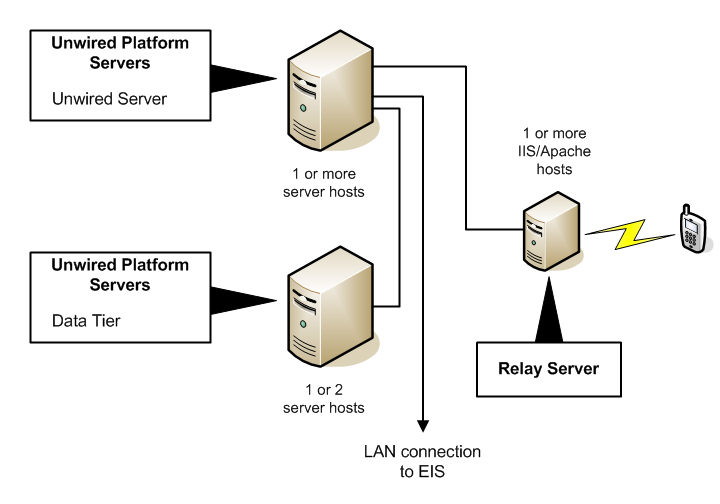A clustered Unwired Platform system is a multi-node system design.
- The Unwired Server cluster enables load balancing across multiple Unwired Server instances
- The data tier cluster enables failover of common data tier resources shared by multiple Unwired Servers
A multi-node design is most suitable for production systems that may require some combination of scalability, high availability, and high performance.
Scalability is a key benefit of designs with multiple Unwired Server nodes. You can start with a minimal multi-node system — just one Unwired Server node and a data tier cluster (two nodes). You can expand the Unwired Server cluster independently, adding nodes as needed.

In a typical multi-node system, the Unwired Server instances do not share host system resources with data tier servers.
When Unwired Server and data tier servers reside on separate hosts, they depend on network connections for some inter-process communications.
Host system resources must be adequate to support all of the applications and services included in the Unwired Platform component.
In the data tier cluster, shared cluster storage resources must be adequate to support all databases managed by the data tier servers.